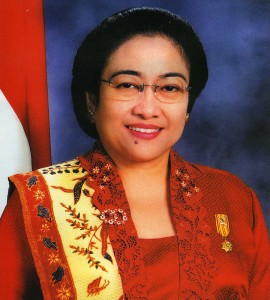 A scholar, a comedian, and two CNN anchors. While they contrasted their assertions vehemently, were they really so different? Reza Aslan’s take down of Bill Maher on CNN Tonight on Monday focused on Maher’s “unsophisticated” oversimplification of Muslims (which CNN anchors Don Lemon and Alisyn Camerota continued in their repeated generalization of “Muslim countries”). But, to attack them for oversimplifying, Aslan used his own problematic oversimplifications. The debate started with Bill Maher last Friday declaring,
A scholar, a comedian, and two CNN anchors. While they contrasted their assertions vehemently, were they really so different? Reza Aslan’s take down of Bill Maher on CNN Tonight on Monday focused on Maher’s “unsophisticated” oversimplification of Muslims (which CNN anchors Don Lemon and Alisyn Camerota continued in their repeated generalization of “Muslim countries”). But, to attack them for oversimplifying, Aslan used his own problematic oversimplifications. The debate started with Bill Maher last Friday declaring,
If vast numbers of Muslims across the world believe, and they do, that humans deserve to die for merely holding a different idea or a drawing a cartoon or writing a book or eloping with the wrong person. Not only does the Muslim world have something in common with ISIS, it has too much in common with ISIS.
Aslan was absolutely right that such oversimplifications like Maher’s are dangerous. Aslan repeatedly questioned the CNN anchors for generalizing “Muslim countries” by pointing out that the negative examples of the treatment of women in places like Iran and Saudi Arabia ignored the majority Muslim countries like Indonesia and Turkey where women have many more rights. When Aslan asserted, “Female genital mutilation is an African problem,” though, he employed for rhetorical purposes his own oversimplification. He later rephrased that to the more specific “central African problem”, but that remains a gross oversimplification, as if all of the cultures and people in central Africa are the same. In countering their generalization of Muslim countries, he also generalized about Indonesia, Turkey, and Bangladesh. In Indonesia, according to Aslan, “women are absolutely 100% equal to men.” Indonesia is quite diverse, with different understandings of Islam and cultural practices in different provinces from Aceh to Bali, but I doubt that women are “absolutely 100% equal to men” in any of those provinces, or anywhere else in the world. Recent discussions in the US about women in combat, problems of rape and sexual harassment, equal pay, etc., suggest that many do not see equality as something already achieved in the US, and similar debates around the world, including Turkey and Indonesia, undermine Aslan’s claim.
In Aslan’s effort to decenter and complicate Islam, he simply shifted the overgeneralization to the level of nation-states. Using generalizations to counter problematic generalizations makes the positions quite similar. Of course, any assertion involves a certain level of generalization (even if talking about an individual, who is complicated and shifting in different circumstances). But Aslan compounded this by suggesting that he emphasizes facts in contrast to the oversimplifications. Recognizing that the rhetorical comparisons you use, whatever level of generalization that is involved, are something that you create for your own purposes is imperative, especially when critiquing others for doing the same thing.
Don Lemon, the CNN host, concluded the segment with Aslan asserting, “We are just asking the questions,” as if they held a neutral position that inoculates them from Aslan’s criticism. We all need to own the choices that we make in constructing arguments and questions and the assumptions and oversimplifications embedded in them. I choose what quotes to critique from all of these participants (not to mention focusing on this example out of many available) to highlight a particular comparison that I want to highlight. Of course, their assertions at points are more complicated than even I have portrayed them here. The world is complicated (a theme that some students highlight when describing my classes). Any representation of a part of it should include a recognition of our selections and simplifications in making that representation.
Photo of Megawati Sukarnoputri, fifth President of Indonesia (Public domain via Wikimedia Commons)
